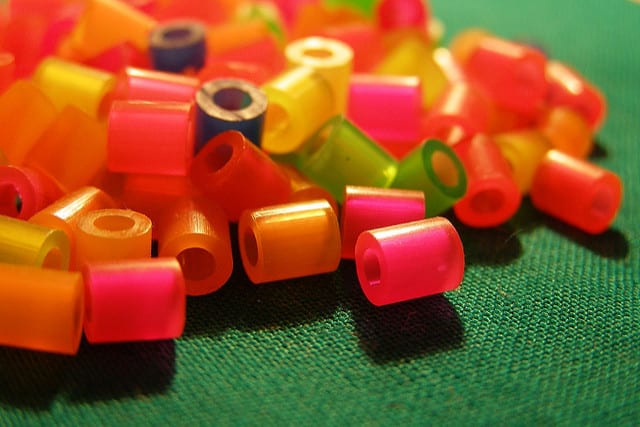It’s not as though we’ve never talked about plastics on Postconsumers before. From laying out exactly how long it takes for a plastic bottle to biodegrade to giving you all of the information that you need about the harmful practice of using single-use plastic bags, we like to think that we’re doing our part to educate the world on the harmful nature of plastic, well, everything. In fact, we can’t say it better than this quote from David Suzuki (though we can give you some pointers on fun ways to upcycle the plastic that you do use). All of that said, given that it’s Earth Day month and that the environmental progress the U.S. has made in the last eight years seems to be under attack, we thought we’d spend a little time adding to our library of plastics articles with some information about BPAs.
What Are BPAs?
Truthfully, we’d be surprised if by now you haven’t gotten in on the conversation about BPAs and why they’re harmful. But in case you haven’t, here’s a primer. BPA stands for Bisphenol A, which is an industrial chemical that’s been used in certain plastics as well as resins since the 1960s. That means if you grew up in the plastic era (which most of us did), you were exposed to BPAs in almost everything that you used. Not only that, but since BPAs are most common in plastics that are related to food use (food containers and water bottles) and the most common use of the resins is in metal water bottles, food cans and some water supply lines, you were likely taking BPAs into your system regularly. Take a moment to release your gag reflex before you read on!
What Harm Can BPAs Do?
We’re not doctors, but we can tell you what the research says. The research says that BPAs can have an adverse impact on the brain, behavior patterns and prostate gland of fetuses, infants and children. Theoretically by the time you are an adult, the damage caused by BPAs has already happened. It should be noted that the studies that led to that conclusion used high-doses of BPA (sadly, on animals) and that the FDA maintains that BPAs are safe when it’s simply low-dose exposure. So how would these impacts show themselves?
- Hormone Imbalances: BPAs are thought to act as a hormone inhibitor, which can lead to development and fertility issues.
- Cancer Risk: There are studies that show an increased risk of cancer later in life after BPA exposure.
- An Entire Host of Conditions: ADHD, obesity and diabetes have all been linked to BPAs in various studies.
Somewhat obviously, if the studies were absolutely conclusive, we would not have BPAs in anything at this point. But the studies are compelling enough to lead many people to begin to remove plastics from their lives, a change we support for an entire variety of reasons.
How Do You Reduce Exposure to BPAs in Your Daily Life?
You probably can’t avoid BPAs entirely, but these five steps will dramatically reduce how many BPAs you expose yourself to.
- Ditch the Bottled Water: It’s a lot of plastic into the environment and it’s plastic with BPAs. Buy a water filtration system and transfer your water into a glass or non-BPA metal drinking bottle.
- No Frozen Food in Plastic Containers: Double whammy – plastic plus microwave.
- No Canned Foods: We support this for reasons that have more to do with in-taking aluminum than BPAs, but BPAs are a good reason to slow down on the canned food.
- Replace Your Plastic Tupperware with Glass Storage: It will also last longer and look nicer!
- Switch to a French Press: Instead of a plastic coffee maker or take-out coffee. You’ll also experience better tasting coffee!
Yes, There Is BPA-Free Plastic
Increasingly, there are plastics being marketed as BPA free. We certainly recommend these as opposed to other plastics (particularly for children). However, it’s also important to keep in mind that the studies on BPA-free plastics are just beginning. In fact, the Environmental Defense Fund strongly believes that BPA plastics aren’t safe at all.
At the end of the day, you may be picking from the lesser of several evils. However, here is what we know for sure. The less plastic that you can expose yourself to in life, the better. It’s better for you, it’s better for the planet and it’s better for those around you.
Did we miss a fact about BPAs and plastics? Tell us about it on the social media channels below.
Facebook | Twitter | Instagram | Tumblr | Pinterest | Google+ | Medium
Photo Credit: Sarah Jordan via Flickr





